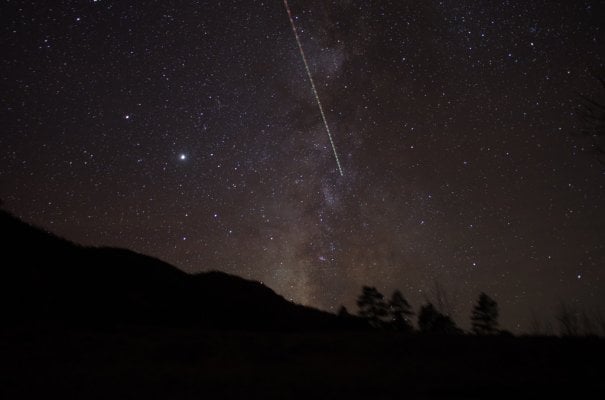I have been designing and building telescopes for spaceborne instruments for 45 years. I have been involved in amateur astronomy on and off for decades.
There are a lot of telescopes of various sizes collecting dust in peoples garages because many telescopes are not very portable and are a bit too specialized to use for much else besides stargzing. After the viewing of the panets and the moon and a couple of galaxies wears off they tend to get used rarely due to that lack of versatility and portability.
If you do not aleady have a good pair of 8 x 50 or 10 x 50 binoculars I recommend starting there. Portability, ease of use and versatility are maximized in that range and they can be hand held (anything with more magification must be supported by a tripod). Either of these sizes would give sufficeint light gathering capability to do some star gazing as well as be handy for use on a boat, while hiking bird watching, wildlife viewing, etc..
I recommend buying a good quality pair with at least 15mm eye relief (more if you want to wear your glasses while using them). You will pay over $200 but you will be happier with the preformance than a cheap pair. Canon and Nikon are good brands, Steiner and Bosch & Lomb, even the higher priced Bushnells, are good enough. I see Vortex popping up on a lot of lists as a top pick - I am not familiar with that brand so don't know about the quality. Do some research on quality and shop around.
For a step up from there my recommendation is to get a decent pair of 15x - 20x binoculars and a sturdy tripod (if it is light enough to take hiking it is probably not sturdy enough) that is at least 72" tall (better if 80 " to use while standing). High power binoculars are more versitile than a telescope and can also be used for viewing distant landscapes and wildlife, etc. You can also buy adapters so you can take pictures through your binoculars.
You can buy a decent pair of astronomical binoculars new for under $400 and used for $200 - $300. Like anything else there is a broad range of prices and quality. The cheaper models (under $700 models) will probably have plastic parts (particularly for the eye piece focus) and because they are relatively heavy you will need to handle them carefully but the Optics should be good enough.
Check ebay for used Zuhmell, Celestron, Meade, Orion, and Oberwerk to name a few.
If you decide skygazing and astronomy is your thing you can always buy an astronomical telescope later. You will probably have a better idea of what you want too.
Aperture size and field of view for telescopes are an important consideration depending on what you intend to do.
There are entire web pages devoted to helping beginners get started in the hobby. Below are links to a few of the many sites out there.
https://www.aaa.org/articles/observing-resources-for-amateur-astronomers/
https://www.planetary.org/night-sky/astronomy-for-beginners
https://www.space.com/27775-amateur-astronomy-guide.html
In all events opinions will, of course, vary. ;-)
I hope this is helpful,
Craig



